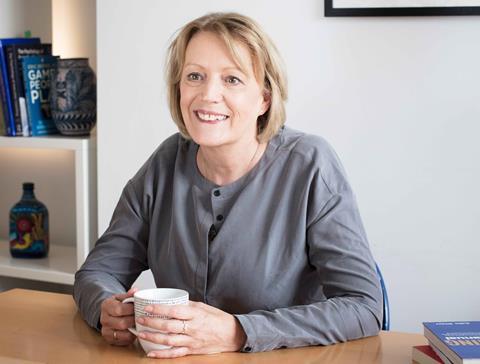After so long living a life of restrictions, emerging from this latest lockdown poses a new set of challenges. So take it slowly, writes Louise Rodgers

I am on mute. You are on mute. We have all been on mute since we were told, a year ago, to stop socialising, stay indoors and work from home. And, after the initial shock and trauma, we adapted. With varying degrees of difficulty, we met the challenge of working at home.
We should not underestimate what we have achieved, both individually and collectively, over the past year, particularly against the backdrop of fear, tragedy and sadness that left none of us untouched. But, now that we have the road map “out” of all this, is returning to normal as simple as clicking the unmute button?
In my last column I suggested that perhaps it is not. Very few businesses expect their people to return to the office five days a week. The workplace, and our working lives, have changed irrevocably. There is going to be a lot of recalibrating going on, as we work out how to adjust to this.
But what about other aspects of our lives that have been on hold? For 12 months we have been living a toned-down, low-key existence, pretty much without novelty or stimulation and with far too much screen-time. There was a brief respite last summer but, even then, most people I know continued to self-limit their activities. No large gatherings, no holidays abroad, no daily commute to the office.
The decision to shrink our lives was taken out of our hands. And many of us found it suited us more than we had anticipated. The social pressure to be out every evening, and charging around from place to place all weekend, disappeared. Just about everything slowed right down. There were no new exhibitions to see, live performances to watch, restaurants to eat at. No FOMO.
We replaced some of these things with others that have become important to us, and which we may not want to give up. Some of us were out more in nature; we spent more time doing things such as cooking; we enjoyed more and a different kind of family time. Socially distanced walks replaced chatting with a friend over a glass of wine.
But there were some notable downsides, not least of which was that the novelty of adapting to life in lockdown inevitably wore off, and for many of us who were working, work took over. I know I am not the only person who felt caught in a cycle of work, walk, eat, sleep, repeat.
Like many others I have found this third lockdown particularly difficult; a sense of lethargy and boredom has kicked in that has sometimes been hard to shake off. But, now that it is coming to an end, I am not sure that it is going to be easy for most of us as we think it might be to come out of it.
I am reminded of the need to come up slowly after a deep-sea dive; surface too quickly and you might get decompression sickness, or “the bends”.
We are all going to have to make a whole series of small decisions about how to live our post-pandemic lives. Many of these decisions will define our personal futures, and they are ours alone to make. I know from my work that this knowledge fills some people with deep anxiety.
Which is why I am using my column this month to invite you to take it slowly. Don’t feel pressurised to hit a new groove as soon as you emerge, blinking in the sunlight, from your lockdown life.
As a coach I often encourage people to get outside of their comfort zone and take risks as the fast-track route to personal growth and development. But when it comes to thinking about post-lockdown living, I am saying please forget all that.
Embrace your comfort zone, work out what exactly what it is that makes it comfortable, and what you eventually want to take with you when you leave it. Perhaps nudge against the edges of the zone from time-to-time to get closer to what’s on the other side, but set your own pace and resist having the pace of your emergence imposed upon you.
Disruption and isolation encourage us to re-evaluate our lives, and that might not be such a bad thing. Take time out to reflect on the things you’ve gained from the last year as well as the things you’ve lost. How have you changed? What would you like to take forward and what do you want to leave behind?
How are you going to be your “best self” and live your “best life”, in the post-pandemic world?
















No comments yet